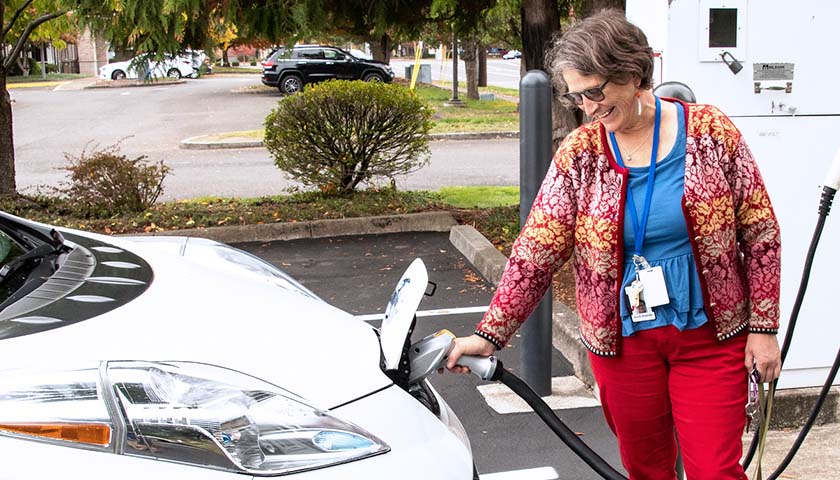by Scott McClallen
As the number of electric vehicles grows in Michigan, so does the revenue hole from missing gas taxes that fix the damn roads.
The newly formed Coalition on Electric Vehicles and Transportation Revenue says lawmakers need to replace road funding lost by a growing number of EV drivers who don’t pay state or federal gas taxes.
An Anderson Economic Group study estimates that from 2019-2021, Michigan roads lost out on $50 million in state gas tax because EVs charge instead of filling up at the pump. With EVs representing between 15% to 25% of new vehicle sales statewide by 2030, EVs could cost the state $95 million a year by 2030, with a total deficit of up to $470 million.
Principal and CEO of Anderson Economic Group Patrick Anderson said that EV drivers don’t pay state or federal gas taxes, so they pay 70%-80% of what typical drivers pay.
There are 25,181 EVs registered statewide compared to 6.5 million vehicles with internal combustion engines. The state is spending $110 million to build charging infrastructure to prepare for 2 million EVs on the road by 2030.
Moreover, EVs often weigh a thousand pounds more than traditional vehicles because of battery weight, meaning they tear up roads more but pay less for their repair. Michigan has more than 120,000 miles of roads.
“Michigan put the world on wheels, and 100 years later we continue to lead the world into a new and exciting future for mobility. But we need to act now to ensure we have the road funding needed to drive that future,” County Roads Association of Michigan CEO Denise Donahue said in a statement. “That’s why we are calling on lawmakers and the Governor to launch a pilot project that gives us the answers we need about a future-forward road funding model for EVs.”
The CRAM estimates with that loss in funding, county road agencies wouldn’t be able to resurface 840 miles of local and primary roads annually.
The report offers five solutions:
- An annual flat registration fee to counter lost revenue.
- Mileage-based user fees.
- Per kilowatt-hour fees.
- Miles at registration fees.
- Tolling.
The report found that drivers of vehicles with internal combustion engines pay on average $402 a year in fuel taxes and registration fees. Meanwhile, the owners of fully electric vehicles, plug-in hybrids, and hybrids pay $298, $262, and $269, respectively.
– – –
Scott McClallen is a staff writer covering Michigan and Minnesota for The Center Square. A graduate of Hillsdale College, his work has appeared on Forbes.com and FEE.org. Previously, he worked as a financial analyst at Pepsi.
Photo “Woman Charging Electric Vehicle” by Oregon Department of Transportation. CC BY 2.0.





